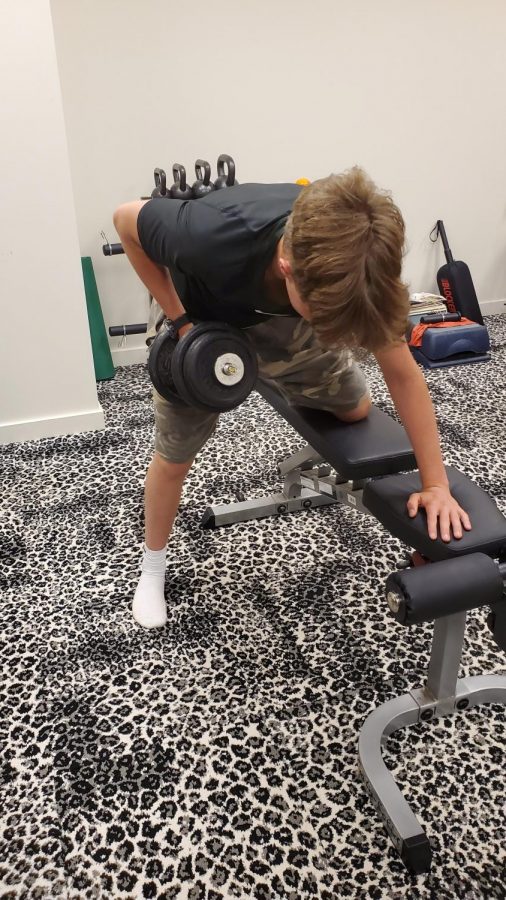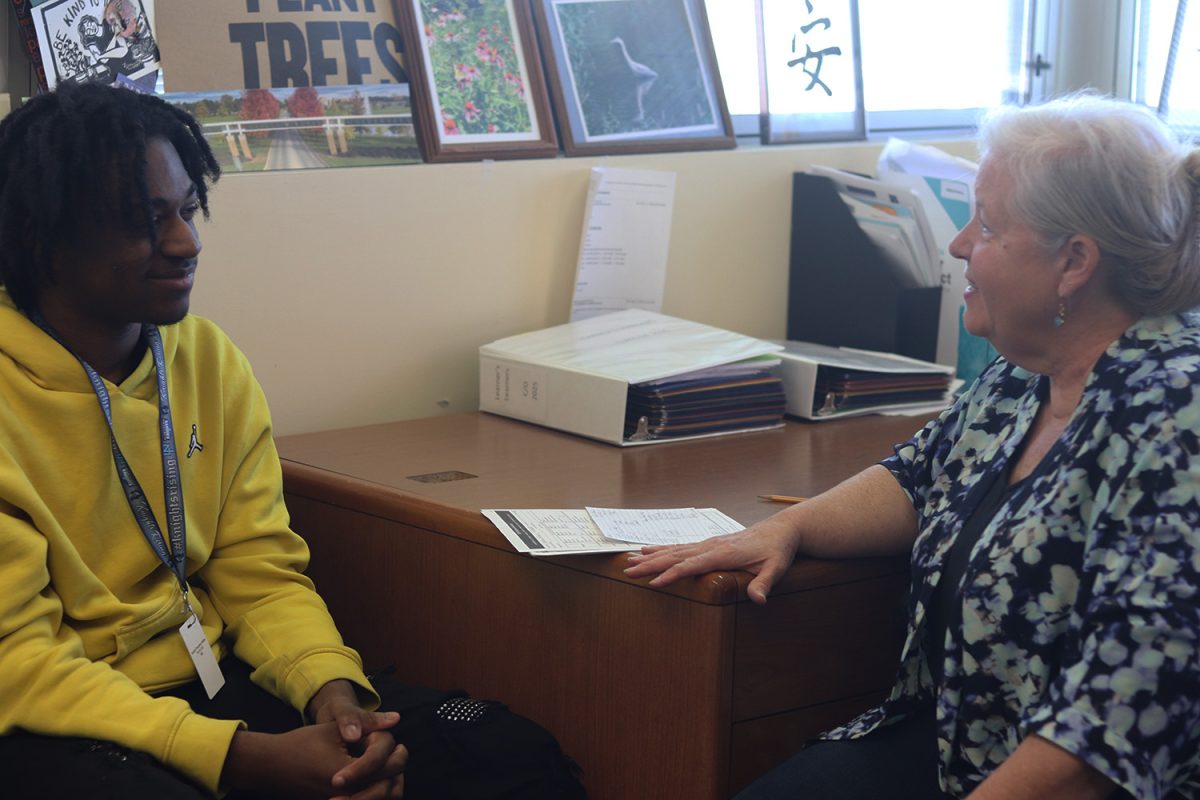Exercise will improve life in quarantine
Credit: Peter Woodruff
Sophomore Ian Woodruff performs a ‘row’. Rows are commonly found in upper body workouts.
June 9, 2020
With so many businesses closed due to COVID-19 shutdowns, people haven’t had the same day-to-day exercise as before.
Before these shutdowns, non-essential businesses were open and employees had to move in some way to get to work, customers maneuvered around stores or malls, and students had to walk in between classes. Overall people had to move to continue with their routine tasks.
Some people have made efforts to go for walks or exercise during quarantine, while some have not. This daily exercise is very important for people, especially if you are struggling with anxiety or depression during these hard times.
According to Zhanjia Zhang in “A Systematic Review of the Relationship Between Physical Activity and Happiness,” “All the observational studies reported positive associations between physical activity and happiness. As little as 10-min physical activity per week or 1 day of doing exercise per week might result in increased levels of happiness.”
Your happiness is directly proportionate to your physical activity, meaning that every day you should make an effort to be active if you want to be happier.
For many when you feel happier, you end up being more productive.
Sophomore Annie Betts who attends an online school program says that exercise makes her “Feel accomplished after I do it,” and “Exercising definitely helps me get school work done because it gives me that little push/kickstart to my day.”
Being active doesn’t mean you need to go to the gym every day and have an intense workout. Being active can be as little as a 10-minute walk around your neighborhood once per week. As long as you get your body moving, you are being active, and it’s healthy.
Arden Hermann-Wilmarth, a sophomore at Loy Norrix has been running 3 times a week and says that running gives him something to do, and makes him feel good.
My experience with exercise during this pandemic has been very good. I have been walking, running, and lifting weights. It makes me physically feel good, which leads me to mentally feel good. There was a small window of time where I fell out of exercising consistently, and I noticed that my productivity and mental energy decreased.
I fell behind in school, and my body just didn’t feel as good. But when I got back into exercising, I began catching up on all of my work and noticed that I was in general much happier and more productive.
Loy Norrix sophomore Lillian Daniels said, “I have been exercising during the quarantine.” Daniels continued, “It is important to exercise because athletes have stronger immune systems; therefore, they are less likely to die from the COVID-19.”
Daniels’s statement can be backed up by Medline Plus in “Exercise and immunity” where they theorize that “Exercise causes a change in antibodies and white blood cells (WBC). WBCs are the body’s immune system cells that fight disease. These antibodies or WBCs circulate more rapidly, so they could detect illnesses earlier than they might have before.” However this theory, among others, had not been scientifically proven.
In general, exercise improves your mental and physical health, increases productivity and generally improves people’s lives. You should make it a goal to take short walks every day or even just exercise a few times a week, and it should improve your lives.
After reading this article, try and take a 10-minute walk and get your body moving.












